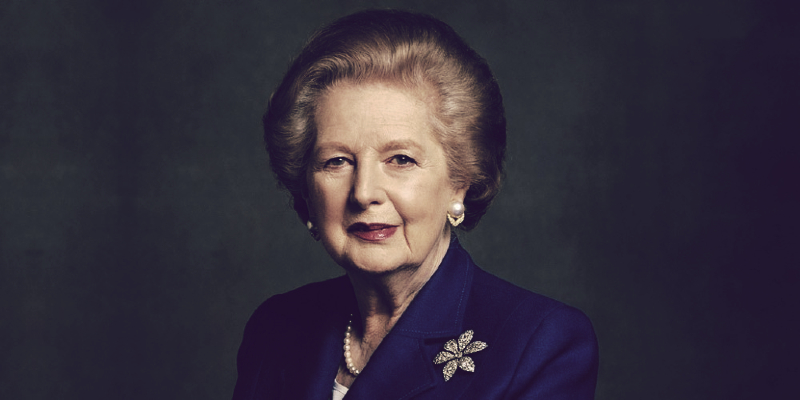
Margaret Thatcher was the first female prime minister of United Kingdom. She was a leader of the Conservative Party. She was called the “Iron Lady” because of her leadership style and radical beliefs.
Margaret Hilda Roberts was born on October 13, 1925, in Grantham, to Alfred Roberts and Beatrice Ethel. Her father was a grocer and the town mayor. She had one sibling. Margaret attended Kesteven Grantham Girls ‘School. She did exceptionally well academically and participated in many extra-curricular activities. In 1943, she went to Oxford College. There, Margaret was the president of the Oxford University Conservative Association and graduated with a degree in chemistry.
In 1950, Thatcher stood for Parliament elections for the first time. She was the youngest and the only female representative at that time. Margaret had major support from the public even though it was difficult to defeat the liberal Labour Party. She did not win the first time, but tried as a conservative candidate once more, only to be defeated again. In 1952, Thatcher studied law and qualified as a barrister, in 1953.
In 1959, she won her first election. Over the next few years, she rose in the ranks of the Conservative Party and joined the Shadow cabinet in 1967. Thatcher was the secretary of state for education and helped in increasing the education budget and building more schools. In 1974, the Conservative Party lost power, which made Thatcher a dominant face in politics. She became the leader of the Conservative Party in 1975. She was finally elected as the prime minister on May 4, 1979.
The same year, Britain was going through an economic crisis. Thatcher adopted a new economic theory known as ‘monetarism’. She also modified the government’s control on businesses, taxation policies and money circulation. During the 1980s, the Thatcher government gained move favor after their success in the Falkland’s War. Argentina attacked Falklands War. Argentina attacked Falkland Islands, a British Territory in 1982. Thatcher led Britain to victory, which raised her government’s popularity. In 1983, after her re-election, she continued to employ her strict economic policies and practices called “Thatcherism’.
In 1984, a miners’ strike took place. Thatcher had forced the workers to work with no allowances after their protest against ‘uneconomic pits’. During her second term as prime minister, Thatcher worked through multiple crises. The most famous one being an assassination attempt against her.
She was elected for a third term in 1987. In her third term, she introduced new policies and changes in the tax system. But the new tax policies led to an economic imbalance within her party. Her power as prime minister declined in 1989. However, she continued implementing her ideas and refused to change the tax and labor laws.
The economic condition worsened and the cabinet wanted to her resign. She finally resigned in 1990. Next year, she was admitted to the House of Lords. She also wrote three books: The Downing Street Years, the Path to Power, and Statecraft. She explained her political experiences in these books.
Thatcher was made an honorary member of the Cabinet Club. She was the first woman to get the full membership rights of the club. She received the highest civilian honor, the Presidential Medal of Freedom from the United States in 1991. In 1992, Time Magazine included her in the list of ‘100 most important people of the 20th century’. In 1998, she received the Ronald Regan Freedom Award.
She married Sir Denis Thatcher in 1951. They had twins. After the death of her husband Margaret became a hermit and avoided public appearances. She died on April 8, 2013 at the age of 87, in London, after she suffered a stroke.
